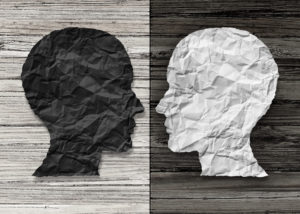Nearly 8 million Americans suffer from the combination of a mental health disorder and a substance use disorder.
Known as dual diagnosis or co-curring disorders, one of the most deadly involves eating disorders and substance abuse. And we’re only now realizing just how common it is for a person to experience both.
When an eating disorder exists alongside an addiction, the risks involved in each are compounded. While treatment is an option, it takes time, patience, and finding the right program to overcome this type of dual diagnosis.
If you or a loved one is struggling with an eating disorder and substance abuse, keep reading to learn more.
Eating Disorders and Substance Abuse
The National Center on Addiction and Substance Abuse has done research on eating disorders and substance abuse. The results are both illuminating and startling.
They found that as many as half of the individuals who have an eating disorder also abuse alcohol or illicit drugs. That frequency is five times higher than that of the general population.
In addition, as much as 35% of people who struggle with substance abuse also have an eating disorder. That number is 11 times higher than that of the general population.
People with eating disorders tend to abuse certain substances more than others. The most commonly abused substances include laxatives, emetics, diuretics, alcohol, heroin, cocaine, and amphetamines.
Signs and Symptoms of Eating Disorders and Addiction
In relation to eating disorders and substance abuse, which comes first varies according to the individual. Substance abuse may have triggered the eating disorder. Or the eating disorder may lead to using substances to control and cope with an unhealthy relationship with food.
It’s also possible that substance abuse and/or an eating disorder can occur after recovering from one of the two.
That fact can complicate treatment. But the signs and symptoms, as well as the screening process for clinicians, is almost the same. Medical professionals use the following criteria to screen for both:
- Increasing frequency and intensity of addictive behavior
- Obsession and preoccupation with the subject of addiction
- Cravings and rituals around an addictive behavior
- Continuing addictive behavior despite negative consequences
- Choosing to spend time on addictive substance/behavior over other interests
- Wanting to stop harmful behavior and being unable to do so
- Concern from family and friends around behavior
- Isolation from friends, family, and social events
Eating disorders and addiction are both considered chronic diseases. They’re resistant to treatment and have high rates of relapse. But with intensive, long-term therapy and support, there is hope for a return to normal life.
Risk Factors
The commonalities between eating disorders and addiction don’t stop at how they’re diagnosed. They also share a number of common risks factors.
Risk factors for eating disorders and substance abuse include:
- a strong genetic component
- certain brain chemistry and chemical processes in the brain
- family history of substance abuse
- home environment
- trauma
- personality traits such as low self-esteem
- mental health conditions such as depression and anxiety
- social pressure and media messages
- socio-economic status
The health risks associated with eating disorders are compounded by drug and alcohol abuse.
It increases the risks of cancers such as the throat, stomach, and mouth cancer. With a lack of sustenance in the body, drugs and alcohol have a more profound effect and can more easily lead to overdosing. The eating disorder can also have a significant impact on heart health as well as the health of other vital organs.
Those with eating disorders and addiction also have much higher rates of suicide. For all of these reasons, treatment for both conditions is absolutely necessary.
How to Treat Eating Disorders and Substance Abuse
While they do share a lot in common in terms of diagnosis and risk factors, treating the eating disorder and substance abuse is different. That’s because eating disorders require special care.
In a traditional treatment program, the most important step in the process is stopping the use of the substance. But while addiction treatment can help an addict stop using drugs and alcohol, someone with an eating disorder requires the subject of their condition in order to live.
This presents its own unique challenges. Not only does treatment have to help a patient stop using a substance, but they also have to help that person develop a healthy relationship with food.
As we learn more about the prevalence of co-curring eating disorders and substance abuse, more treatment options are becoming available. In treatment centers that treat dual diagnosis patients, they generally screen for eating disorders upon patient intake.
However, the relationship between eating disorders and addiction is a relatively new realization in the medical community. As such, these types of treatment centers are far and few between. And while you’ll find many treatment centers that specialize in treating one or the other, they’re often ill-equipped to treat both.
Without a treatment program that treats both sides of the coin, successful recovery is a long and difficult road. A patient who goes for help with drug addiction but not their eating disorder often relapses on their eating disorder when they stop using drugs. And if they then go for help for an eating disorder, they often relapse on drug use.
It’s believed that eating disorders often feed substance abuse and vice versa. This cycle of relapse and remission will continue until both conditions are treated simultaneously.
Getting Help with Successful Outcomes
Eating disorders and substance abuse often go hand in hand. The frequency of people with eating disorders who also have a substance use disorder is higher than that of the general population. Because the complications associated with eating disorders are compounded by the existence of a substance abuse disorder, getting help is important.
But getting the right kind of help will determine whether or not recovery is successful. For that, you need a treatment center that specializes in dual diagnosis. Contact us today to learn more about our programs.










